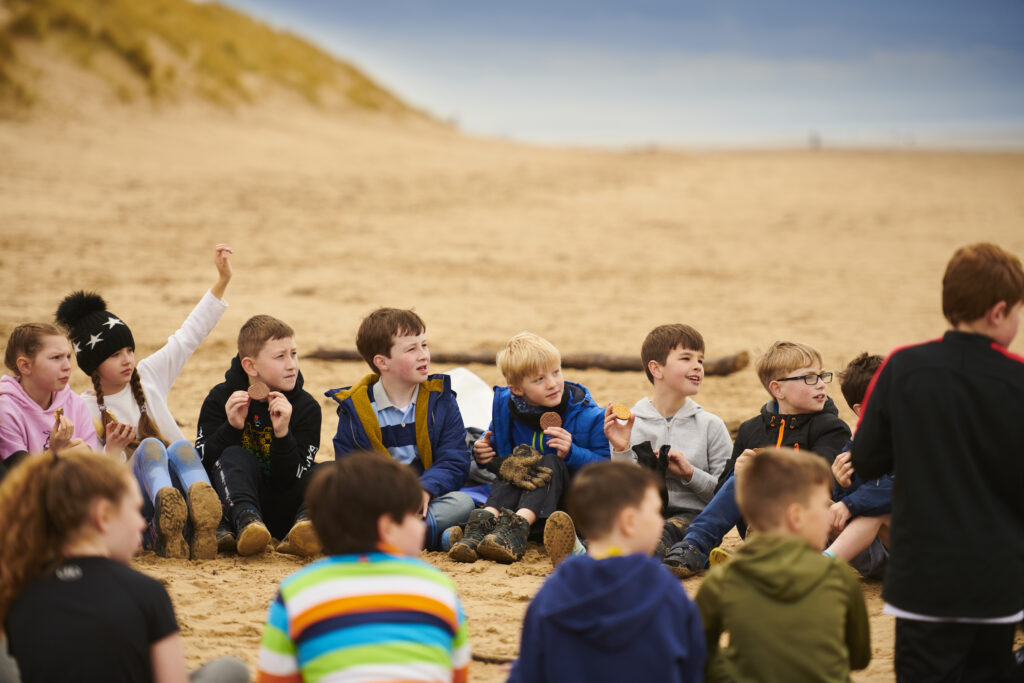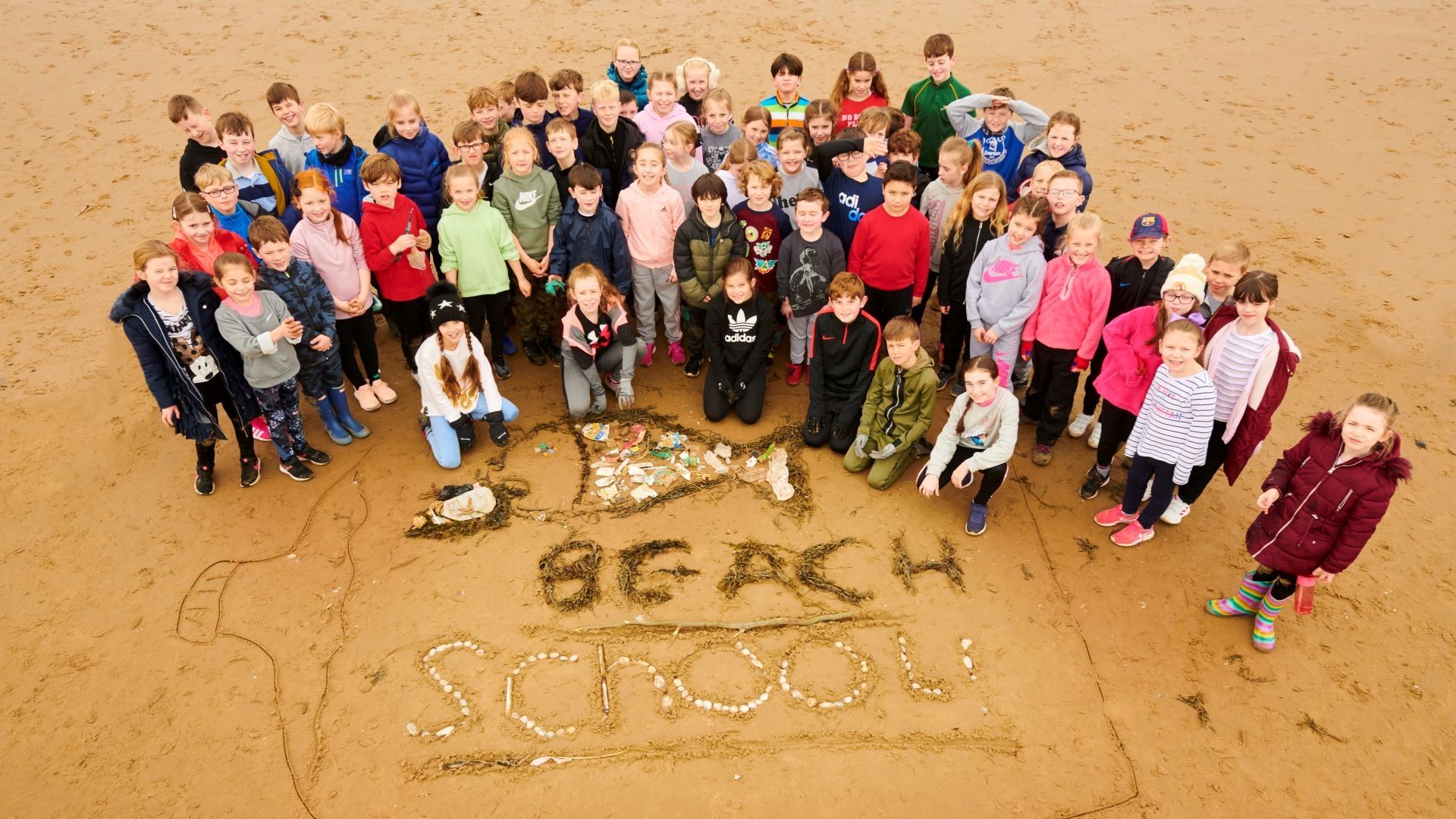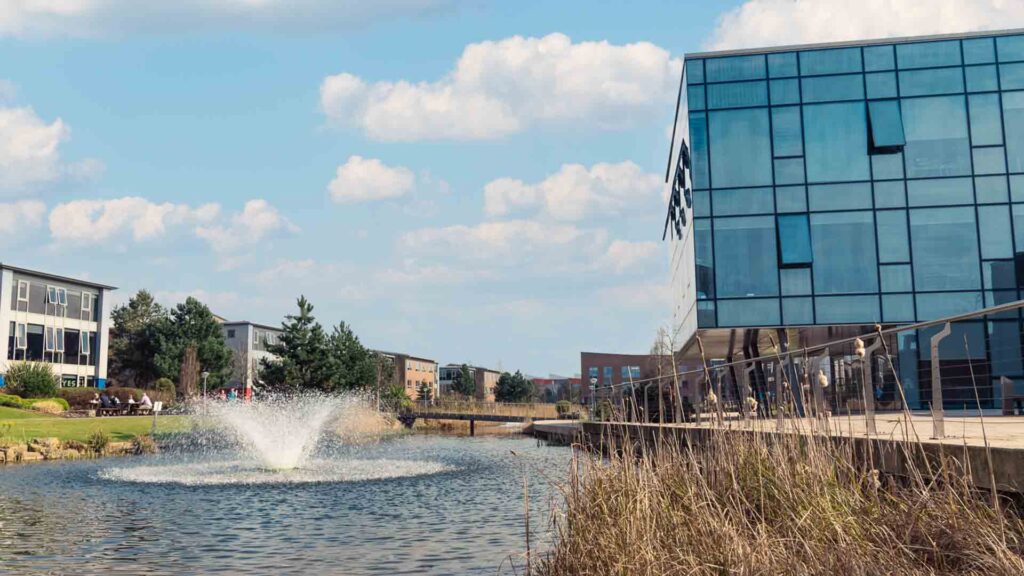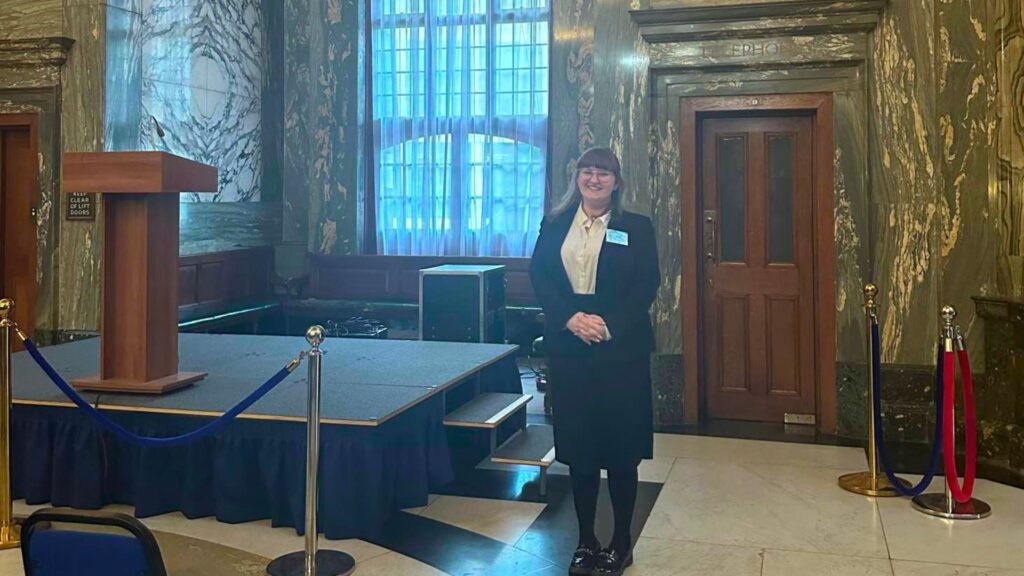Schools and education providers are being invited to join the North West Coast Beach School Network and fill in two questionnaires for teachers and pupils.
The results will be used to collate a wider data set of research to contribute to a wider study looking at educational and health inequalities on the North-West coast. This will help to inform policy changes for coastal learning and how beach schools make a positive impact on young people.
This is being done in response to a report released earlier this year by the Chief Medical Officer, which highlighted that coastal communities often face long-standing health and wellbeing inequalities that must be urgently addressed.

Professor of Psychology and Public Mental Health Rhiannon Corcoran from Liverpool University is the Improving Mental Health Lead at ARC NWC, she said: “The Chief Medical Officer’s report this year highlighted the profound and longstanding health and wellbeing inequities of coastal communities. Yet these very places rest among some of the finest natural resources this country has. Coastal open spaces must be harnessed and made best use of to benefit the people who live in these, too often, economically disadvantaged places.
“The beach school network within the North West Coast provides the opportunity to spread the benefits of outdoor learning that has been shown to particularly benefit pupils who may not always shine within the classroom. Beach school practice can be used in a way that benefits a wider coastal population too. We propose to develop intergenerational beech school activity focussed on the recognition, value and use of coastal spaces to show how local beaches can improve health and wellbeing community-wide.”
Senior Lecturer in Education Cait Talbot-Landers from Edge Hill University is Co-Ordinator of the NW Coast Beach School Network, she said: “We understand the importance of not only working with schools and settings within the community but utilising the partnerships with organisations and Local Authorities to ensure children from all backgrounds can participate in our coastal activities to enhance blue space education throughout the NWC.”
Primary findings have identified that children can feel free, happier and calmer on the beach whilst also expressing that is an exciting space to spend time. It also appears to be a vital tool for improving pro-ecological behaviours in the children, which we hope will spread to their families and local communities.
Cait continued: “We have noticed that a lot of the children have brought their families back and imitated the activities with they did at our workshops with their families. It is great to see what the young people have learnt and how they are teaching and guiding others to share in their experiences.”
The North West Coast Beach School Network is currently collaborating with 74 schools and coastal settings across the region to improve health and wellbeing. The Beach School will also be included as part of the Morecombe Bay curriculum from September.
Schools and other educational settings who have taken part in the Beach School are invited to fill in either the teacher questionnaire or pupil questionnaire.
For further information on how to get involved in The North West Coast Beach School Network and find dates of meetings, follow the Edge Hill University Beach School co-ordinators Cait and Beth on Twitter at @LandersCait or @bethan_garrett and use the hashtag #EcoMermaid.
The Beach School Network meets regularly.
- The Fylde coast meeting is Tuesday 8 November 9.30am to 12pm at Thornton Cleveleys.
- The Sefton coast meeting is on Thursday 10 November 1.00pm to 3.15pm at the Ainsdale Discovery Centre Ainsdale Southport.
- The Morecombe and Wyre Coast Meeting will be in February 2023.
October 27, 2022



